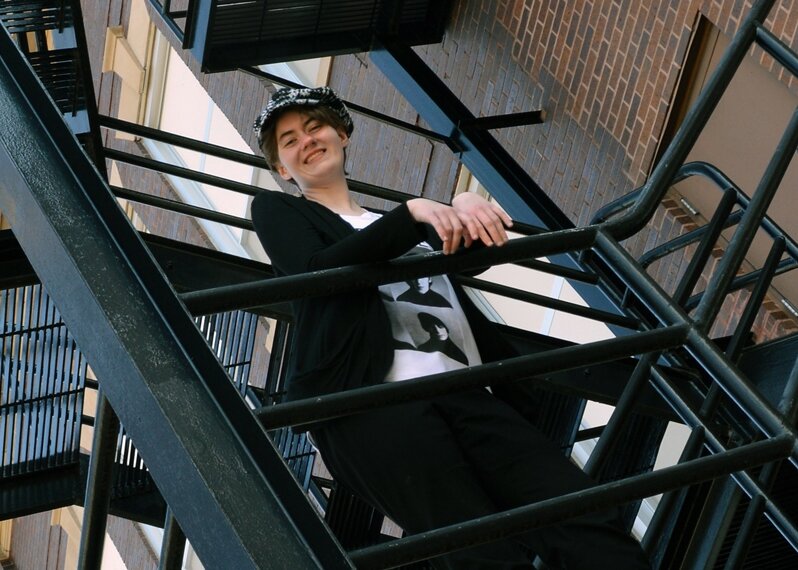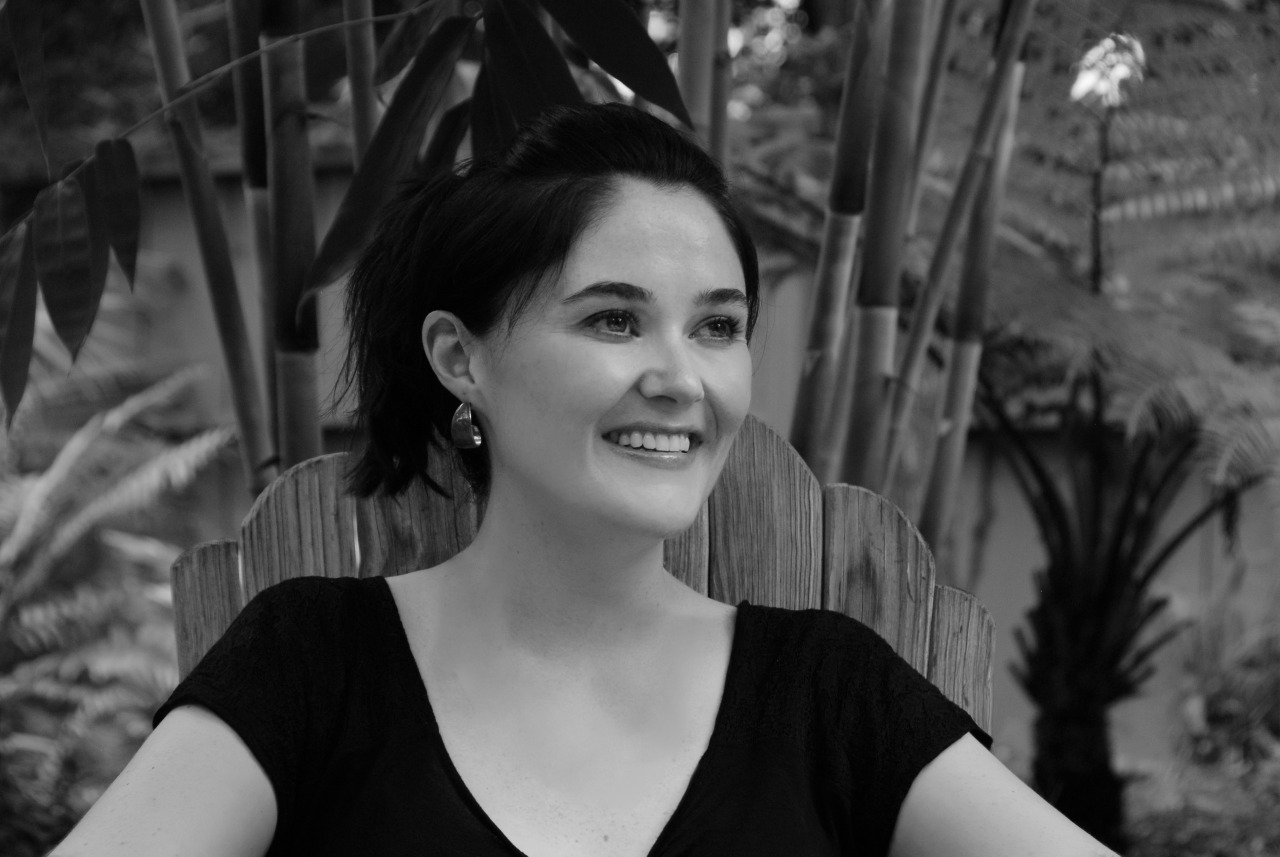 Kelly Weber
Kelly Weber
I was a bleary-eyed and fast-fading bookfair exhibitor on day two of AWP when Kelly Weber approached the Primal School table and nearly made me spill my coffee by mentioning “the democratization of poetry education." Two possibilities occurred to me; she’d either read my mind or my personal slogan for this blog wasn’t so unique after all – a recognition that was hugely liberating. Here's what became evident to me during our interview: her love of sound and audience and language, her patience for knowing every frontier of creative possibility in a poem’s writing, a bone-deep enjoyment of the teaching process, and perhaps above all else, her reverence for the wild world. – HLJ
===
I've been spending a bit of time with your poems and fiction and am inspired by a thematic through-line in your writing, this occupation with the natural world. In writing your poem "The Field Guide to Small Dead Things," was there a specific trigger or memory? How did this poem come to you, or how did you come to this poem?
There’s definitely an ecological streak to my poetry and fiction. I don't write a ton of fiction because my brain seems to groove on poetry, and so even my fiction emerges with a strongly poetic bent...but the predominant theme of animals makes its way into both, certainly. Because I discovered the same wild streak surfacing repeatedly in my poems, I decided to make that the focus of my unpublished thesis collection, "The Field Guide to Small Dead Things". On a broad scale, this group of poems focuses on the day-to-day encounter of humans with animals. What small things do we humans take for granted? What power do we assume over small things like bugs or snakes that make its way into "our" spaces: homes, garages, etc.? I think there's a lot of room to look at our faults and weaknesses when meditating on an animal or wild thing, and also when we talk about our stories and interactions. That's been the broad theme of the thesis.
So with the poetry – and major thanks to Gravel for publishing this poem – I've been submitting my work here and there. There were actually two sources of inspiration for "Field Guide”. The first was an experience I’d had as a seventh-grader when our teacher led us through the woods, over a period of months, to record what we saw. We actually got to walk in the woods behind our school, which was a nice change from being in the classroom, but at one point we hit a creek and the teacher asked everyone to jump over it. I took one look at it and thought, "Yeah...no." I can't swim, and it was winter and I was pretty sure I'd slip on the ice, so I stayed behind and just tried to jot down what I could. All these years later that incident seems so emblematic of my life: I wanted to be a bio major, but I wanted to sit and observe things more than I wanted to cross the creek.
So this incident kept resurfacing in my daily freewriting and in the notes I took here and there, and two things emerged: that image of the other students fading away from me, leaving my English/biologist-wanna-be self behind, and not knowing what to do with it beyond that. When I finally put the thesis together, I had the idea for a collection with the name "The Field Guide to Small Dead Things", but didn't have the title poem written yet. It finally occurred to me to try combining those two orphaned threads of thought, and I think it ignited them both. The poem had an end and the collection had a piece that I felt captured what I was trying to do in all the poems, which was record the small and dead or harmed and wild things in our lives – while also honoring those things through poetry and careful observation of the world around us. Which I think is its own way of honoring all life.
===
THE FIELD GUIDE TO SMALL DEAD THINGS
We chart our course west across field
and tail our seventh grade teacher
from brick-scalloped science room
to woods beyond the school,
spiral-bound notebooks in hand
to practice our powers
of observation: wind, weather, February sun.
At the chain-link fence
woven into diamonds,
he slips a key into the padlock
and unhooks the magical silver stirrup
to lead us through the border
from school to woods beyond.
We crush monochrome-crusted grass
and trace the runic grooves
of haw bark, sap asleep
as filaments in unlit bulbs.
The forest teethed with silver
and carbon, where leaves
of seasons past clot beneath our feet.
Ahead, the creek zinced with ice
has thawed a little, burbles
raw live iron. One by one
the teacher helps us step across.
I sway over white-ringed stones
moss-slick and treacherous
and I refuse.
The other students move on,
their blue and green coats recede
and I linger on the other side.
While they crouch over handprints
of mysteries, what’s crossed at night
unseen so close to learning’s doorstep,
I—as fearful
of poor grades as drowning—
fill my notebook with everything
they don’t see, not worth noticing:
rock and clay water’s chewed away,
branch-rattled cold,
all things blued and breathing
left in quiet after children
migrate toward what’s pointed out.
Another world beneath this ochre one
lidded and stirring.
And by April’s time, I’ve trained this eye
with each month’s trip, each stop
at the river’s line, I’ve twirled
the pencil’s rule and covered pages
in graphite. At deadline,
I type my log of small descriptions
and names to hand
to the teacher sailing rows.
To our mutual amazement,
he thumbs it to reveal tables
pegged and socketed with tracks,
snapped twigs, sky deceased
the common thousands
and common millions
I recorded in wire spirals.
Window after window
opens to kestrel chests
and finches plucking seed, gold—
somehow, in creating
the field guide to small dead things
I’ve catalogued the coming of the spring.


